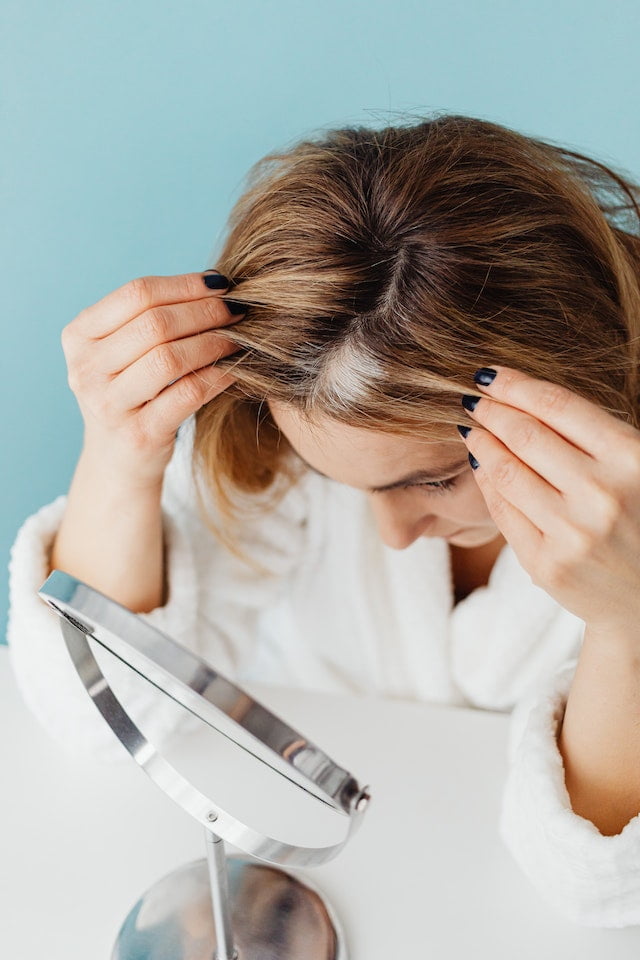It is crucial to clarify that none of the content shared through any of our platforms — including our website, YouTube channel, social media, or any other place where we might share information — is intended to be, nor should it be considered as, health advice.
There are several ways to treat grey hairs once you reach the age of 50:
- Use hair dyes or hair coloring products: These products can cover up grey hairs, giving you the appearance of a fuller head of hair. There are a wide range of hair dye options available, including permanent, semi-permanent, and temporary dyes.
- Use hair fibers: Hair fibers are small strands of keratin or other synthetic materials that can be used to cover up thinning or grey hairs. They can be applied with a special spray or brush, and they bond to your existing hair, making it look thicker and fuller.
- Try hair-thickening products: There are many products on the market that claim to thicken hair and make it look fuller. These products can be applied to the scalp and hair and may help to cover up thinning or grey hairs.
- Consider hair transplant surgery: If you have significant hair loss or thinning, a hair transplant surgery may be an option. This procedure involves transplanting hair follicles from one area of the scalp to another.
- Use hair growth products: There are a variety of products available that claim to stimulate hair growth and help prevent hair loss. These products may include minoxidil or other ingredients that are designed to help the hair grow thicker and fuller.
- Eat a healthy diet: A healthy diet that is rich in vitamins and minerals may help to promote healthy hair growth and prevent hair loss.
- Avoid heat styling: Heat styling, such as blow-drying or using hot rollers, can damage the hair and lead to breakage. Try to avoid heat styling as much as possible, or use a heat protectant product to minimize the damage.
- Consult a dermatologist: If you are experiencing significant hair loss or thinning, it may be a good idea to consult a dermatologist or other medical professional. They can help to determine the cause of the hair loss and recommend appropriate treatment options.
Affiliate Disclosure: I only recommend products I would use myself and all opinions expressed here are our own. This post may contain affiliate links that at no additional cost to you, I may earn a small commission.

























